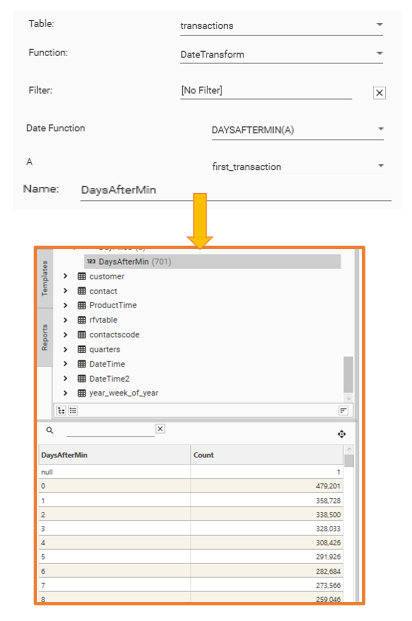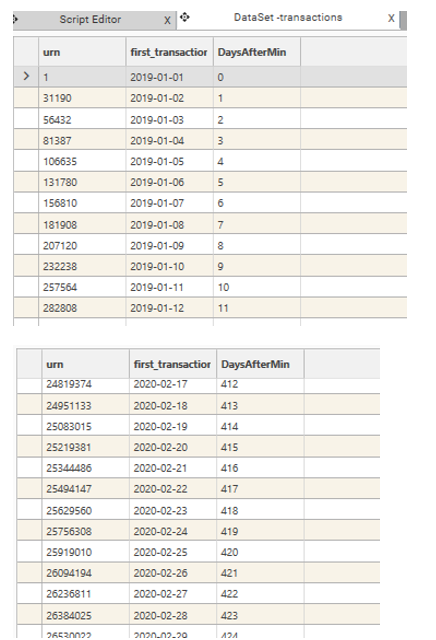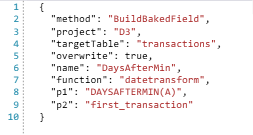Date Transform: DAYSAFTERMIN(A)
Returns the difference in days between A and Min(A)
Purpose
Use this function to calculate:
- The number of days that have elapsed between an event and the earliest occurrence of that event
- The age of a transaction, in days, since the earliest transaction in the dataset
Return Value
| Property | Value |
|---|---|
| FieldType | Integer |
| FieldSize | Med |
| DataType | Discrete |
| DataSize | Short |
Example Return Value: 0....N
where
N is the maximum number of days since the earliest date in the dataset
Parameters
| Parameter | JSON | Description |
|---|---|---|
| Table | “targetTable”: “MyTableName” | The target table on which the new field will be created |
| Filter | “dataset”: {DataSet_JSON} | Optional. If a filter is applied, records not in the filter Recordset will be returned as null. |
| DateTimeFunction | “p1”: “DAYSAFTERMIN(A)” | DAYSAFTERMIN(A) |
| A | “p2”: “DateFieldName” | Required. The date field from which to take the minimum value and the comparator values. Supports:
|
JSON Sample
Usage Notes
See also DAYSBEFOREMAX(A)
Example
| Example | Details |
|---|---|
| Description | Calculate the number of days a transaction occurred after the first transaction |
| Input |
|
| Sample |  |

